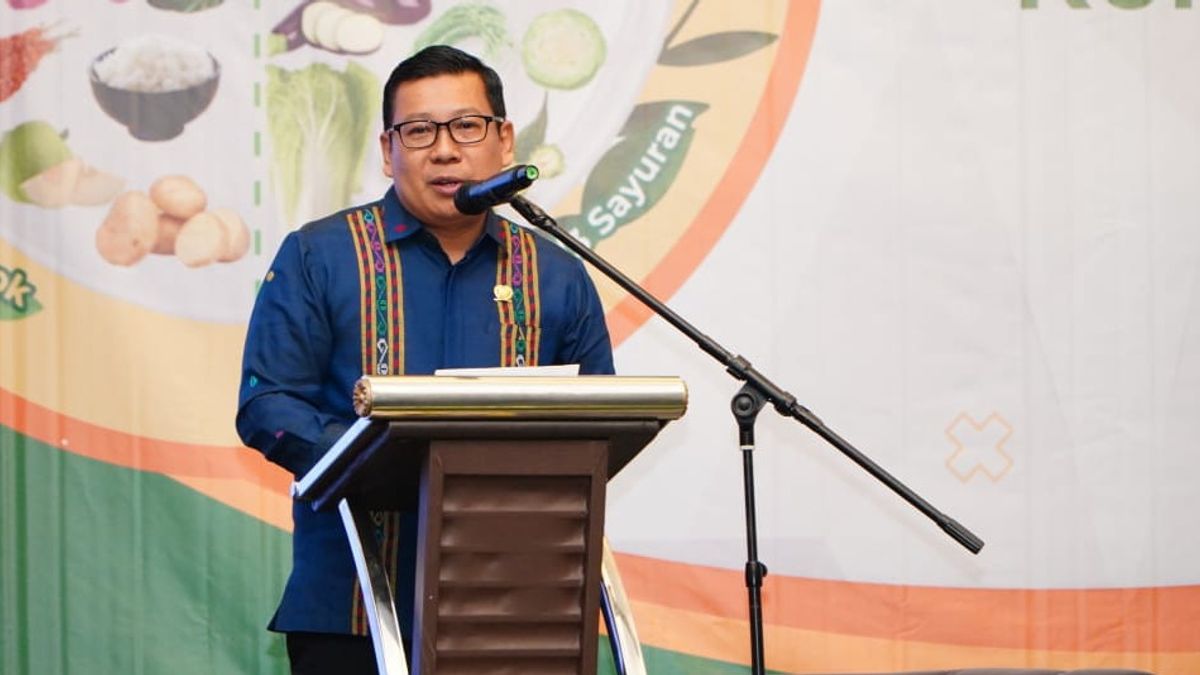JAKARTA - The National Food Agency (Bapanas) invites the Indonesian people to increase their consumption of local fruit.
This is because strong food security is based on food independence.
Head of Bapanas Arief Prasetyo Adi said that consuming local fruit is one manifestation of efforts to diversify food consumption based on the potential of local resources according to Presidential Decree 81 of 2024.
"There are at least three positive things that can be obtained. First, as a step to support a healthy lifestyle, second, to encourage the regional and national economy, and third, to improve the welfare of local farmers. Because the production results of our fellow farmers in the country can be absorbed well," explained Arief as reported by ANTARA, Sunday, November 3.
When asked whether the encouragement to consume local fruit was related to the news about Shine Muscat grapes which are imported products, Arief explained that people have the freedom to consume the food they want.
However, Arief emphasized that strong food security is certainly based on food independence.
"To build strong food security, the basis is food independence. This means that we must prioritize domestic production. Indonesia has a variety of reliable fruits, such as mangosteen, mango, banana, and salak, and many more," he said.
"So, we encourage people to prioritize local fruits, which are not only fresh but also contribute to the welfare of Indonesian farmers," he added.
Based on data from the 2023 Expected Food Pattern (PPH), Indonesian people's fruit consumption was recorded at 76.7 grams per capita per day in 2021, increasing to 85.2 grams per capita per day, and reaching 88.7 grams in 2023, with an increase of 3 grams per capita per day between the 2022-2023 period.
Although the trend of people's fruit consumption continues to increase, continued Arief, Indonesia's average fruit consumption is still below the PPH target and the recommendations of the World Health Organization (WHO).
PPH data for 2023 shows that the average Indonesian person consumes only 34.4 kilograms of fruit per capita per year, while WHO recommends a minimum fruit consumption of 65 kilograms per capita per year.
Local Fruits Have Advantages
Meanwhile, Bapanas Food Consumption Diversification Director, Rinna Syawal said that local fruits have several advantages compared to imported fruits, both in terms of freshness and more optimal nutritional content.
"Local fruits are fresher and healthier because they are harvested when they are perfectly ripe and do not need to travel long distances to reach consumers. This not only ensures a fresher taste, but also maintains the nutritional quality of the fruit," said Rinna.
Rinna said that her party is actively carrying out promotions and campaigns for local fruit consumption in various activities throughout 2024.
"We have distributed approximately 9,050 bottles of vegetable and fruit juice, as well as 15,350 bananas for free in various activities to increase public awareness of the importance of consuming local fruit," said Rinna.
In addition to direct campaigns to the community, Bapanas also runs the B2SA Goes to School (BGtS) program which is introduced in schools with the concept of eating Diverse, Nutritious, Balanced, and Safe (B2SA) with a focus on local food ingredients. This program is carried out in 380 schools in 38 provinces with a target of reaching 80,000 male and female students.
"Through these various initiative programs, the National Food Agency hopes that local fruit consumption can continue to increase and create awareness of the importance of choosing local fruit for health and domestic economic progress," she said.
The English, Chinese, Japanese, Arabic, and French versions are automatically generated by the AI. So there may still be inaccuracies in translating, please always see Indonesian as our main language. (system supported by DigitalSiber.id)













